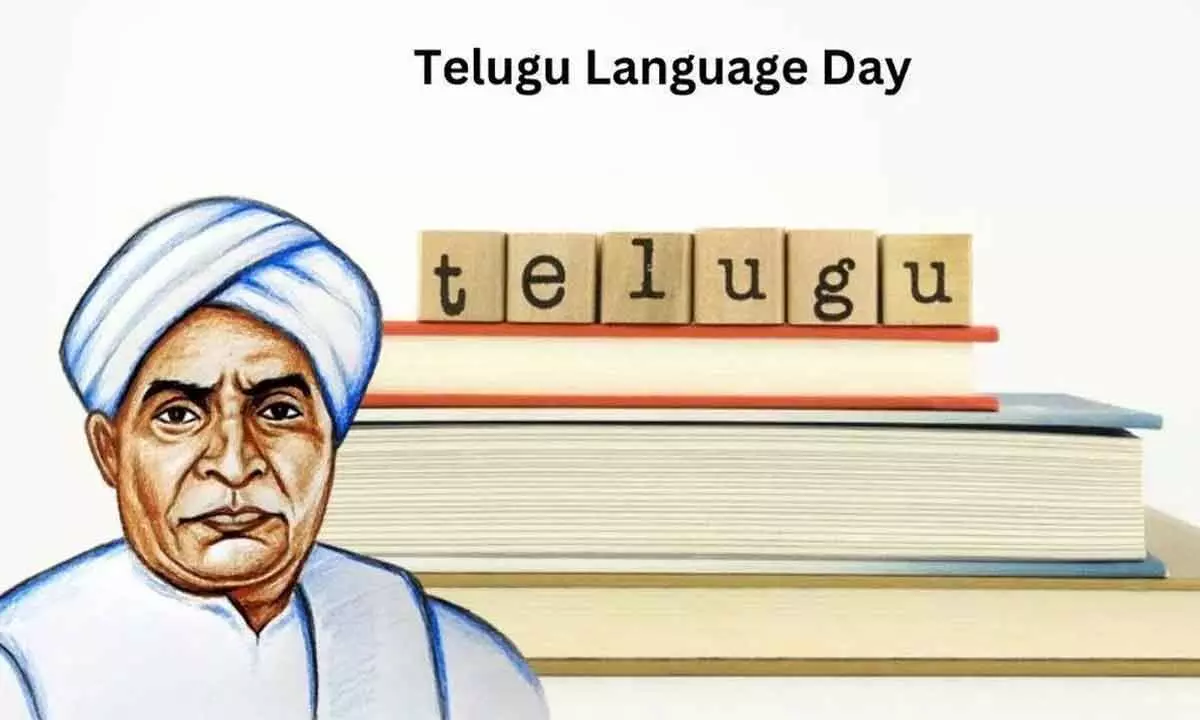Live
- Malabar Gold & Diamonds launches new gold jewellery
- Collector reviews arrangements for Guv’s visit
- 13 members of robbery gang arrested
- Country’s development depends on youth’s progress: Collector Vinod
- Exports picking up as mfg gains steam
- CM Revanth Reddy to Attend Commonwealth Mediation and Arbitration Conference Today
- Beware of new cyber scam ‘digital arrest’: SP Subba Rayudu
- Sensex, Nifty slip under pressure amid weak global cues
- Posters on novel solutions to problems at Tech Summit
- Conduct Tiruchanoor fest akin to Tirumala’s: TTD EO
Just In
Are Telugu states shunning their diaspora across the country?


- Telugu leaders going ga-ga over pan-Anglophilia leaves no hopes for Telugu diaspora in the country
- Diaspora demands construction of Telugu Bhavans in other states
Hyderabad: Has the Telugu diaspora gotten a raw deal from the two Telugu states of Telangana and Andhra Pradesh? It was seven years since the representatives of the Telugu diaspora attended the World Telugu Congress held in Hyderabad explained their woes and sought the intervention of the governments of the two Telugu states to come to their aid. However, both governments went the English media way, leaving them in the lurch. This is unlike other southern states trying to reach out to their diaspora to promote Kannada, Malayalam and Tamil.
The Telugu diaspora asked the Telugu states to come to their rescue. Other states have their native language in education, which their children have to compulsorily learn, and in the process, keep forgetting Telugu.
Speaking to The Hans India, Saveem Ramesh from the Udumalpet village in the Udumalaipettai Udumalaipettai mandal of the old Coimbatore district in Tamil Nadu said, “We live in a place bordering Tamil Nadu and Kerala. Here, only ‘Dwibhasha Sutram’ (Two language formula) is being followed. And, Telugu children have to study only English and Tamil.”
63-year-old B Nageswara Rao from Chennai said, “Earlier, there were about 140 Telugu teaching schools in Chennai city alone. But, their number has fallen to about 14 now. An electrician by profession, Rao had had published 500 small books and storybooks to make Telugu interesting to children.
“The State government there says lack of students is forcing them to close down the Telugu teaching schools. But, the non-availability of teachers is the reason for students not opting for Telugu. The future of Telugu learning in Tamil Nadu has become bleak,” he said.
Rohini Satya, a writer from Bengaluru said several schools teach Telugu in the city. Annually, the Telugu Vignana Samithi hosts a get-together during Ugadi. Besides, the Krishna Deva Raya Puraskaram is presented annually to those who have contributed to the Telugu language, she added. Rohini translated Telugu books into Kannada and vice versa. She said that people living in the border areas between Andhra Pradesh, Telangana and Karnataka pick up both Kannada and Telugu. However, there are issues like lack of teachers to teach the Telugu language, she said.
Sangamanenvini Narendra from Dombivili in the Thane district of Maharashtra, is one among those attending the WTC. He said that there are an estimated 14 lakh Telugu people living in Mumbai, Solapur and other places. Earlier, about 52 schools were teaching Telugu language. But now, they have come down to 40 and falling further. The main reason for the closure is attributed to lack of students. But, the real reason is the lack of teachers.
Efforts made requesting the former Maharashtra State Governor Ch Vidyasagar Rao to start a Telugu department in Mumbai University have come to a knot. Offering courses of B.Ed and D.Ed will help us to get trained teachers, he said. But, the only solace is that the Andhra Education Society has been running seven primary schools and a junior college.
Also, “There are places like Kannada Bhavan, Kerala Bhavan and the like. A Telugu Bhavan will help the diaspora a lot. We submitted a memorandum to Telangana Chief Minister K Chandrashekar Rao when he came to Mumbai asking to help construct a Telugu Bhavan in Mumbai. However, nothing materialised in the last one-and-half years,” he said.
The state of affairs for the Telugu diaspora living in the Odisha has been turning from bad to worse. Dr Turlapati Rajeswari, a writer regretting not being able to attend the conference said, “Telugu people are living mainly in places like Berhampur, Parlakimidi, Jaipur, Rayagada and the like. As in other places, Telugu teaching schools have been getting closed and the reason remains the same. We get only Telugu books for the first standard. The Potti Sriramulu Telugu University (PSTU) has washed away its hand citing that it cannot translate Odia medium books to Telugu medium without permission from the Odisha state government. Now, people collect donations ranging from Rs 500 to Rs 1,000 to get the Odia medium books translated locally, and to provide material to the Telugu students,” she added. It was a lost battle to the Telugu fishermen in Gopalpur in the area. They have now almost shifted to Odia and even changed their surnames with those of local Odia people.
PVPC Prasad, from Ahmedabad, said that the Telugu people live mainly in Ahmedabad, Surat, Navsari, Kandla Port Trust and the like. There is no discrimination towards the Telugu language and about 21 schools are running in Surat. But the main problem is that the students are not getting the translated books as and when the syllabus is updated here, he said.

© 2024 Hyderabad Media House Limited/The Hans India. All rights reserved. Powered by hocalwire.com






